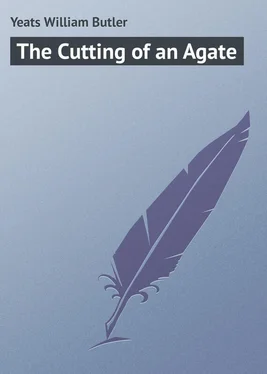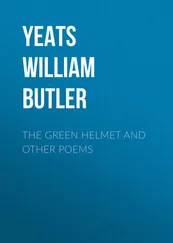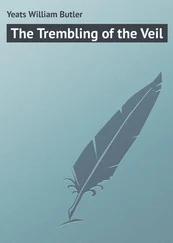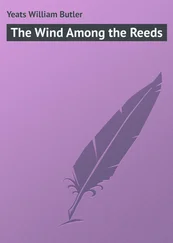William Yeats - The Cutting of an Agate
Здесь есть возможность читать онлайн «William Yeats - The Cutting of an Agate» — ознакомительный отрывок электронной книги совершенно бесплатно, а после прочтения отрывка купить полную версию. В некоторых случаях можно слушать аудио, скачать через торрент в формате fb2 и присутствует краткое содержание. Жанр: foreign_prose, на английском языке. Описание произведения, (предисловие) а так же отзывы посетителей доступны на портале библиотеки ЛибКат.
- Название:The Cutting of an Agate
- Автор:
- Жанр:
- Год:неизвестен
- ISBN:нет данных
- Рейтинг книги:4 / 5. Голосов: 1
-
Избранное:Добавить в избранное
- Отзывы:
-
Ваша оценка:
- 80
- 1
- 2
- 3
- 4
- 5
The Cutting of an Agate: краткое содержание, описание и аннотация
Предлагаем к чтению аннотацию, описание, краткое содержание или предисловие (зависит от того, что написал сам автор книги «The Cutting of an Agate»). Если вы не нашли необходимую информацию о книге — напишите в комментариях, мы постараемся отыскать её.
The Cutting of an Agate — читать онлайн ознакомительный отрывок
Ниже представлен текст книги, разбитый по страницам. Система сохранения места последней прочитанной страницы, позволяет с удобством читать онлайн бесплатно книгу «The Cutting of an Agate», без необходимости каждый раз заново искать на чём Вы остановились. Поставьте закладку, и сможете в любой момент перейти на страницу, на которой закончили чтение.
Интервал:
Закладка:
We must not measure a young talent, whether we praise or blame, with that of men who are among the greatest of our time, but we may say of any talent, following out a definition, that it takes up the tradition of great drama as it came from the hands of the masters who are acknowledged by all time, and turns away from a dramatic movement, which, though it has been served by fine talent, has been imposed upon us by science, by artificial life, by a passing order.
When the individual life no longer delights in its own energy, when the body is not made strong and beautiful by the activities of daily life, when men have no delight in decorating the body, one may be certain that one lives in a passing order, amid the inventions of a fading vitality. If Homer were alive to-day, he would only resist, after a deliberate struggle, the temptation to find his subject not in Helen’s beauty, that every man has desired, nor in the wisdom and endurance of Odysseus that has been the desire of every woman that has come into the world, but in what somebody would describe, perhaps, as ‘the inevitable contest,’ arising out of economic causes, between the country-places and small towns on the one hand, and, upon the other, the great city of Troy, representing one knows not what ‘tendency to centralisation.’
Mr. Synge has in common with the great theatre of the world, with that of Greece and that of India, with the creator of Falstaff, with Racine, a delight in language, a preoccupation with individual life. He resembles them also by a preoccupation with what is lasting and noble, that came to him, not as I think from books, but while he listened to old stories in the cottages, and contrasted what they remembered with reality. The only literature of the Irish country-people is their songs, full often of extravagant love, and their stories of kings and of kings’ children. ‘I will cry my fill, but not for God, but because Finn and the Fianna are not living,’ says Oisin in the story. Every writer, even every small writer, who has belonged to the great tradition, has had his dream of an impossibly noble life, and the greater he is, the more does it seem to plunge him into some beautiful or bitter reverie. Some, and of these are all the earliest poets of the world, gave it direct expression; others mingle it so subtly with reality, that it is a day’s work to disentangle it; others bring it near by showing one whatever is most its contrary. Mr. Synge, indeed, sets before us ugly, deformed or sinful people, but his people, moved by no practical ambition, are driven by a dream of that impossible life. That we may feel how intensely his woman of the glen dreams of days that shall be entirely alive, she that is ‘a hard woman to please’ must spend her days between a sour-faced old husband, a man who goes mad upon the hills, a craven lad and a drunken tramp; and those two blind people of The Well of the Saints are so transformed by the dream, that they choose blindness rather than reality. He tells us of realities, but he knows that art has never taken more than its symbols from anything that the eye can see or the hand measure.
It is the preoccupation of his characters with their dream that gives his plays their drifting movement, their emotional subtlety. In most of the dramatic writing of our time, and this is one of the reasons why our dramatists do not find the need for a better speech, one finds a simple motive lifted, as it were, into the full light of the stage. The ordinary student of drama will not find anywhere in The Well of the Saints that excitement of the will in the presence of attainable advantages, which he is accustomed to think the natural stuff of drama, and if he see it played he will wonder why act is knitted to act so loosely, why it is all, as it were, flat, why there is so much leisure in the dialogue, even in the midst of passion. If he see the Shadow of the Glen , he will ask, why does this woman go out of her house? Is it because she cannot help herself, or is she content to go? Why is it not all made clearer? And yet, like everybody when caught up into great events, she does many things without being quite certain why she does them. She hardly understands at moments why her action has a certain form, more clearly than why her body is tall or short, fair or brown. She feels an emotion that she does not understand. She is driven by desires that need for their expression, not ‘I admire this man,’ or ‘I must go, whether I will or no,’ but words full of suggestion, rhythms of voice, movements that escape analysis. In addition to all this, she has something that she shares with none but the children of one man’s imagination. She is intoxicated by a dream which is hardly understood by herself, but possesses her like something half remembered on a sudden wakening.
While I write, we are rehearsing The Well of the Saints , and are painting for it decorative scenery, mountains in one or two flat colours and without detail, ash trees and red salleys with something of recurring pattern in their woven boughs. For though the people of the play use no phrase they could not use in daily life, we know that we are seeking to express what no eye has ever seen.
Abbey Theatre, January 27, 1905.DISCOVERIES
PROPHET, PRIEST AND KING
The little theatrical company I write my plays for had come to a west of Ireland town, and was to give a performance in an old ball-room, for there was no other room big enough. I went there from a neighbouring country-house, and, arriving a little before the players, tried to open a window. My hands were black with dirt in a moment, and presently a pane of glass and a part of the window-frame came out in my hands. Everything in this room was half in ruins, the rotten boards cracked under my feet, and our new proscenium and the new boards of the platform looked out of place, and yet the room was not really old, in spite of the musicians’ gallery over the stage. It had been built by some romantic or philanthropic landlord some three or four generations ago, and was a memory of we knew not what unfinished scheme.
From there I went to look for the players, and called for information on a young priest, who had invited them and taken upon himself the finding of an audience. He lived in a high house with other priests, and as I went in I noticed with a whimsical pleasure a broken pane of glass in the fanlight over the door, for he had once told me the story of an old woman who a good many years ago quarrelled with the bishop, got drunk and hurled a stone through the painted glass. He was a clever man who read Meredith and Ibsen, but some of his books had been packed in the fire-grate by his housekeeper, instead of the customary view of an Italian lake or the coloured tissue-paper. The players, who had been giving a performance in a neighbouring town, had not yet come, or were unpacking their costumes and properties at the hotel he had recommended them. We should have time, he said, to go through the half-ruined town and to visit the convent schools and the cathedral, where, owing to his influence, two of our young Irish sculptors had been set to carve an altar and the heads of pillars. I had only heard of this work, and I found its strangeness and simplicity – one of them had been Rodin’s pupil – could not make me forget the meretriciousness of the architecture and the commercial commonplace of the inlaid pavement. The new movement had seized on the cathedral midway in its growth, and the worst of the old and the best of the new were side by side without any sign of transition. The convent school was, as other like places have been to me, – a long room in a workhouse hospital at Portumna, in particular, – a delight to the imagination and the eyes. A new floor had been put into some ecclesiastical building and the light from a great mullioned window, cut off at the middle, fell aslant upon rows of clean and seemingly happy children. The nuns, who show in their own convents, where they can put what they like, a love of what is mean and pretty, make beautiful rooms where the regulations compel them to do all with a few colours and a few flowers. I think it was that day, but am not sure, that I had lunch at a convent and told fairy stories to a couple of nuns, and I hope it was not mere politeness that made them seem to have a child’s interest in such things.
Читать дальшеИнтервал:
Закладка:
Похожие книги на «The Cutting of an Agate»
Представляем Вашему вниманию похожие книги на «The Cutting of an Agate» списком для выбора. Мы отобрали схожую по названию и смыслу литературу в надежде предоставить читателям больше вариантов отыскать новые, интересные, ещё непрочитанные произведения.
Обсуждение, отзывы о книге «The Cutting of an Agate» и просто собственные мнения читателей. Оставьте ваши комментарии, напишите, что Вы думаете о произведении, его смысле или главных героях. Укажите что конкретно понравилось, а что нет, и почему Вы так считаете.












